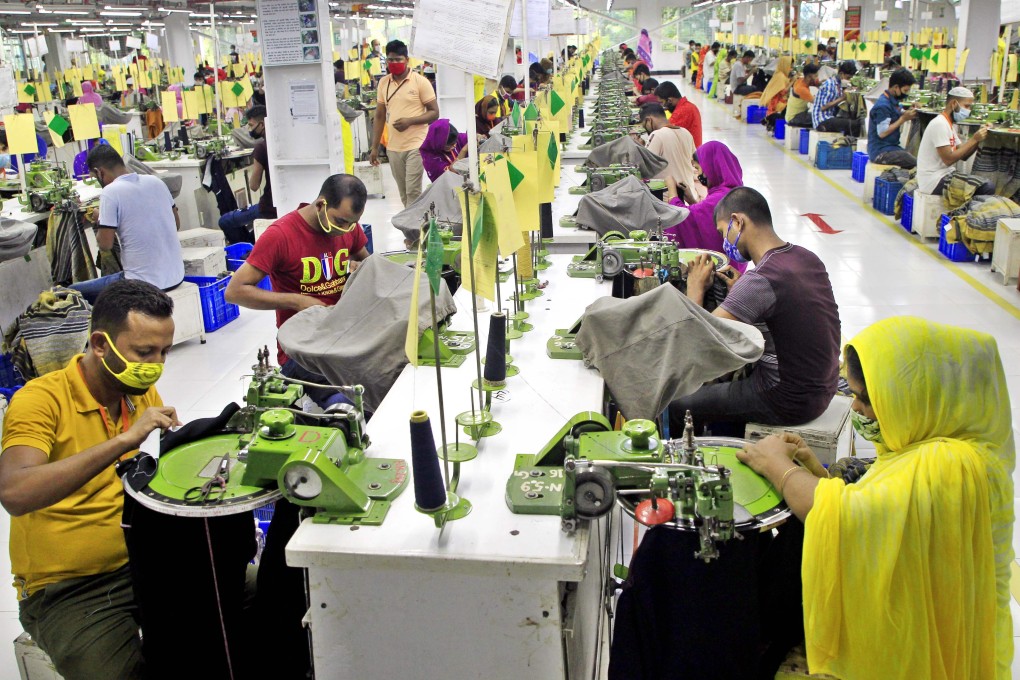How the coronavirus pandemic has propelled modern slavery in Asia’s garment industry
- According to latest analysis, India and Bangladesh have joined Myanmar and China in the category of ’extreme risk’
- About 60 million people work in Asia’s garment industry and lower sales have put many jobs at risk. Laid-off workers may turn to exploitative jobs

The risks faced by workers in Cambodia and Vietnam also rose to their highest in four years, taking 32nd and 35th places in the ranking of 198 countries which identified North Korea, Yemen and Syria as the three worst nations for slave labour.
“What makes the situation even more alarming is that modern slavery risks are set to intensify as countries grapple with the economic fallout of the pandemic,” said Sofia Nazalya, a human rights Analyst at Verisk Maplecroft.
“As more workers are pushed into the informal sector, they will be at greater risk of facing more exploitative forms of work, some of which could amount to forced labour conditions.”
Asian garment workers supplying global fashion brands lost up to US$5.8 billion in wages from March to May, the Clean Clothes Campaign pressure group said last month, as the Covid-19 pandemic led to store closures and cancelled orders.
